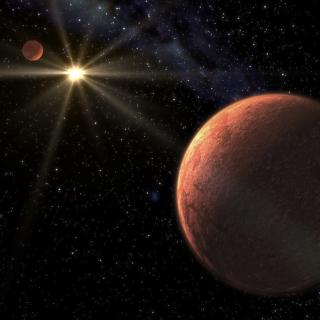Bibcode
Lodieu, N.; Dobbie, P. D.; Cross, N. J. G.; Hambly, N. C.; Read, M. A.; Blake, R. P.; Floyd, D. J. E.
Referencia bibliográfica
Monthly Notices of the Royal Astronomical Society, Volume 435, Issue 3, p.2474-2482
Fecha de publicación:
11
2013
Número de citas
24
Número de citas referidas
21
Descripción
We present the results of a deep ZYJ near-infrared survey of 13.5
deg2 in the Upper Scorpius (USco) OB association. We
photometrically selected ˜100 cluster member candidates with
masses in the range of 30-5 Jupiters, according to state-of-the-art
evolutionary models. We identified 67 ZYJ candidates as bona fide
members, based on complementary photometry and astrometry. We also
extracted five candidates detected with Visible and Infrared Survey
Telescope for Astronomy at YJ only. One is excluded using deep optical
z-band imaging, while two are likely non-members, and three remain as
potential members. We conclude that the USco mass function is more
likely decreasing in the planetary-mass regime (although a flat mass
function cannot yet be discarded), consistent with surveys in other
regions.
Proyectos relacionados

Estrellas de Baja Masa, Enanas Marrones y Planetas
Se investigan los procesos que conducen a la formación de estrellas de baja masa, enanas marrones y exoplanetas y caracterizar las propiedades físicas de estos astros en varias etapas evolutivas. Las estrellas de muy baja masa y las enanas marrones son probablemente los objetos más numerosos de nuestra Galaxia, pero no por ello están
Rafael
Rebolo López